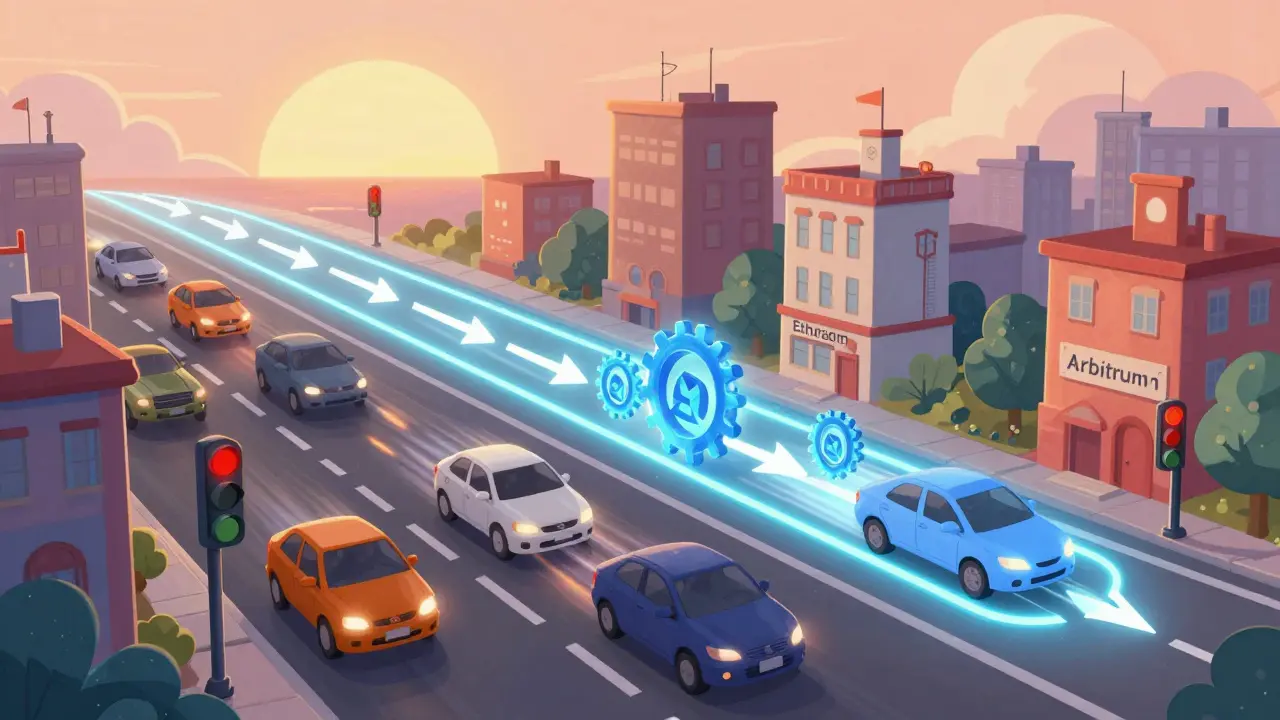Blockchain Basics
When you start digging into Blockchain Basics, the foundational ideas behind decentralized ledgers. Also known as blockchain fundamentals, it shows how data gets stored, verified, and shared without a central authority. Understanding these basics is the first step before you can evaluate any crypto project or decide how to secure your assets.
One of the core building blocks is Proof of Work, a consensus method where miners solve cryptographic puzzles to add blocks. Also known as PoW, it requires significant computational power and electricity, which directly influences network security and transaction costs. Proof of Work shapes the economics of Bitcoin and many early blockchains, making it a must‑know concept for anyone studying blockchain validation.
In contrast, Proof of Stake, a validation approach that selects validators based on the amount of cryptocurrency they lock up. Also called PoS, it lowers energy use and swaps hash power for capital commitment. PoS introduces the idea of staking, where participants earn rewards simply for holding and locking tokens, turning network security into a financial incentive.
Both mining (the PoW process) and staking (the PoS process) aim to reach consensus, but they do it in very different ways. Mining relies on hardware, heat, and electricity, while staking leans on token ownership and smart‑contract rules. This contrast creates a clear trade‑off: high energy consumption versus lower barrier to entry. Knowing which method a blockchain uses helps you gauge risk, potential returns, and environmental impact.
Why does all this matter for beginners? Because most real‑world decisions—whether to buy a coin, join a validator set, or build a dApp—depend on how the underlying chain reaches agreement. By grasping blockchain basics, you can read whitepapers with confidence, compare networks intelligently, and avoid common misconceptions that lead to costly mistakes.
Below you’ll find a curated set of articles that break down each validation method, compare staking and mining, and explain the mechanics of Proof of Work in plain language. Dive in to turn the theory you just read into actionable knowledge you can apply right away.
Sharding vs Layer 2 Solutions: Which Blockchain Scaling Approach Wins?
Sharding and Layer 2 solutions are the two leading ways blockchains scale. One splits the network into parallel chains. The other builds faster lanes on top. Here's how they differ-and which one suits your needs.
What Are Public and Private Keys in Cryptocurrency? A Simple Guide to Crypto Ownership
Public and private keys are the foundation of cryptocurrency ownership. Learn how they work, why one keeps your money safe and the other lets you spend it, and how to avoid losing everything.
Blockchain for Peer-to-Peer Energy Trading: How Neighbors Are Selling Solar Power Directly
Blockchain enables neighbors to trade solar energy directly, cutting costs, reducing waste, and increasing resilience. Learn how P2P energy trading works, where it's succeeding, and why it's the next big shift in clean energy.
Challenges of Immutability in Blockchain Systems
Blockchain immutability ensures data can't be changed, but it causes real problems with privacy laws, smart contract bugs, and security attacks. Learn how enterprises are adapting-and why absolute immutability is no longer practical.
How Hash Functions Secure Cryptocurrency Networks
Hash functions are the invisible foundation of cryptocurrency security, turning data into unbreakable digital fingerprints. SHA-256 and Keccak-256 keep Bitcoin and Ethereum tamper-proof by linking blocks and making fraud computationally impossible.
Understanding Mempool Size and Congestion in Blockchain Networks
Learn how mempool size and congestion affect Bitcoin transaction times and fees. Understand what causes delays, how to check real-time network conditions, and what to do when your transaction gets stuck.
Transparency and Auditability in Blockchain Voting: How It Works and Why It Matters
Blockchain voting uses cryptography and decentralization to make elections transparent and auditable. Every vote is publicly verifiable, tamper-proof, and private. Real pilots in West Virginia and Estonia show it works.
What Is Cryptographic Encryption in Blockchain? A Clear Breakdown
Cryptographic encryption in blockchain uses hash functions, public/private keys, and digital signatures to secure transactions and prevent tampering. It's the reason blockchain is trustless, immutable, and resistant to fraud.
What is Blockchain-as-a-Service? A Simple Guide for Businesses
Blockchain-as-a-Service lets businesses use blockchain without building it themselves. It cuts costs, speeds up deployment, and improves security for supply chains, payments, and identity tracking.
Privacy-Preserving Identity Verification: How Blockchain Keeps Your Data Safe
Privacy-preserving identity verification uses blockchain and cryptography to prove who you are without revealing your personal data. Learn how zero-knowledge proofs and decentralized IDs are replacing traditional ID checks.
Cost of Executing Smart Contracts on Different Blockchains in 2025
Smart contract execution costs vary widely across blockchains-from $0.00025 on Solana to $50+ on Ethereum. Learn how gas fees work, which chains are cheapest, and how to avoid costly mistakes in 2025.
Proof of Work Explained: How Blockchain Consensus Works
Learn what Proof of Work is, how it secures blockchain, its energy impact, and how it compares to Proof of Stake in a clear, practical guide.















